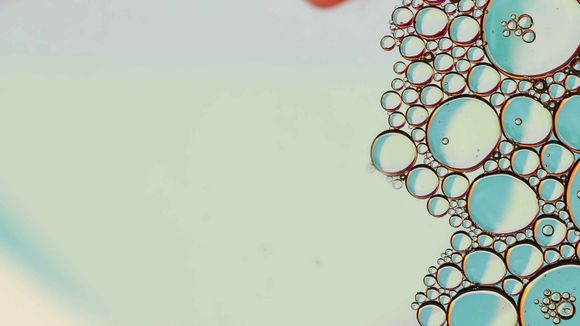Definition of Autophagy
First of all, in order to have a healthy body and healthy cells and tissues, we need to literally get rid of old damaged and unnecessary cells and tissues. This cleansing process is just as important as building them. Even in this sense, we are looking for a balance that keeps us alive and healthy. Our bodies require us to find a balance between processes such as anabolism (promotes growth) and catabolism (promotes degradation); between active daily life and rest when we recover; between eating and fasting as two necessary conditions for a healthier life.
Many of the diseases in advanced life are actually those that are characterized by excessive growth of cells or tissues, as is the case with cardiovascular diseases - plaques accumulate (as in Alzheimer's disease), and cancer is a form of overgrowth of unwanted tissue and so on.
Against the backdrop of the increasing cases of cardiovascular and cancer, it is important to try to see things through the prism of autophagy, and we hope to help you with this through this article.
As we age, and as a normal reaction to time passing, proteins and organelles in the body become damaged or die. If they are not cleared, these damaged particles accumulate in your cells and disrupt the processes that take place in them. When this happens, your cells cannot divide and function normally it can cause cell death and age-related diseases, contribute to poor tissue and/or organ function, and even become cancerous.
And now, what does the process called autophagy have in common? During autophagy, the body marks damaged parts of cells, unused proteins, and other junk in the body for removal and clears them of it. Autophagy is a form of cellular detoxification and in fact the true meaning of detoxification. Autophagy also helps deliver nutrients to the cells that need them. 1
Autophagy can dictate not only how well we live, but perhaps how long we live. This is a key physiological mechanism that has been preserved throughout evolution with the clearly defined goal of allowing the human species to thrive. But when autophagy mechanisms are overloaded or dysfunctional, cells are unable to work optimally, and disease can occur, as well as faster aging of cells and the human body.
Autophagy is absolutely essential for healthy, functioning cells, and if it never reaches its full potential, you can get a variety of diseases. One of the most remarkable ways in which these dead proteins accumulate is seen in Alzheimer's disease. Because they are never cleared from the body, dead proteins travel to the brain and settle there, causing the typical plaques associated with the disease.

Next, intermittent fasting is a eating pattern consisting of periods of eating and fasting with proven benefits for overall health. 2
It is important to note that intermittent fasting is not a traditional type of diet that dictates what to eat or prohibits certain foods. It is a pattern of behavior that perceives abstinence from food at a certain time in order to trigger processes such as autophagy.
Fasting is one of the most effective ways to induce autophagy, and this can include calorie restriction and a type of exercise that puts your cells under pressure to work more efficiently. They trigger autophagy as your cells need to make the most of the few calories available meaning any damaged or dysfunctional organelles are disassembled, cleaned and recycled to be used as a power source.
The point is that many people today rarely experience an energy deficit. Food is plentiful, cheap and easily accessible with a few taps on the phone. And this leads us to an alarming amount of obesity, cardiovascular and chronic diseases.
Health Benefits of Autophagy and Intermittent Fasting
Having a clean body and properly functioning cellular pathways is the foundation of health in both the short and long term. That is why autophagy has such wide-ranging advantages that extend into the following aspects:
Healthy aging

We all get older, but have you noticed that some people seem to age faster than others in terms of appearance and overall health? This is because cellular aging occurs as a result of the accumulation of damaged proteins and organelles that interfere with the normal function and repair of the body. And because of many factors, some people have more of these damaged proteins (and produce less to clear them) than others.
As explained in a study published in the Journal of Clinical & Experimental Pathology, regular stimulation of autophagy can help keep cells healthy and restore pathways to help the body age healthy and with less damage. 3
Weight Management
Autophagy is associated with regulating insulin downwards (because you don't eat food) and growth hormone upwards, which contributes to weight control and maintaining lean muscle mass. Growth hormone (GH) has a fundamental role in regulating in vivo protein metabolism. GH improves protein anabolism at the whole body level, mainly by stimulating protein synthesis. 4
In addition, as a study published in Nature shows, stimulating autophagy can help clear damaged proteins to reduce weight and weight-related complications. 5
Decreased inflammation
Autophagy helps stop inflammation by controlling the actions of several types of inflammatory cells, including macrophages, neutrophils, lymphocytes, and cytokines as cited in a study in Clinical and Translational Medicine. 6 Since autophagy is a powerful anti-inflammatory, stimulating autophagy can help reduce symptoms of various inflammatory diseases, such as Crohn's disease.
Cardioprotective effect

Restricting calories for extended periods, as happens with intermittent fasting, can reduce the risk of developing heart disease and prevent stroke.
Studies have shown that intermittent fasting improves heart health by reducing risk factors for cardiovascular disease, such as high blood sugar levels, high blood pressure, "bad" cholesterol, and high blood triglycerides. In addition, intermittent fasting is of great help in the fight against obesity, which significantly contributes to the development of heart diseases such as heart failure and coronary heart disease.
Improved brain health
Remarkably, most neurodegenerative disorders, such as Alzheimer's disease and Parkinson's disease, are associated with the accumulation of misfolded proteins or pathological proteins. Therefore, impaired autophagy can contribute to these diseases, but the exact mechanism by which it does so is not fully understood. 7
The process may also provide protection against other neurodegenerative diseases, such as Huntington's disease and amyotrophic lateral sclerosis (ALS), as cited in a review in the journal Neurobiology of Aging. 8 The same study further suggests that this is because autophagy helps clear damaged proteins that can build up in the brain, ultimately contributing to aging and brain-related diseases.
Reduced risk of cancer
The role of autophagy in cancer may vary according to the condition and stage. Generally speaking, in the early stages of cancer, autophagy can prevent tumor growth and the spread of cancer, as cited in the publication "Autophagy and autophagy-related proteins in cancer." However, if tumors are in a late stage, autophagy can actually contribute to their growth. 9
And since we mentioned earlier how important this role of autophagy is, let's say what the Nobel Prize was awarded to cancer immunotherapy researchers for. In 2018, the Nobel Prize in Physiology or Medicine was jointly awarded to two researchers in the field of cancer immunotherapy, Dr. James P. Allison of the MD Anderson Cancer Center of the University of Texas and Dr. Tasuku Honjo of Kyoto University in Japan. Allison and Honjo were honored for their work in discovering ways to activate the immune system to attack cancer, which was recognized as a breakthrough in the development of new cancer treatments.
The two scientists worked separately during their careers to show how certain proteins prevent immune cells called T cells from attacking other cells in the body. More about the action of this type of protein and immunotherapeutic drugs called monoclonal antibodies, which can be designed as immune checkpoint inhibitors, can be found in the article Immune Checkpoint Inhibitors and Their Side Effects. 10









